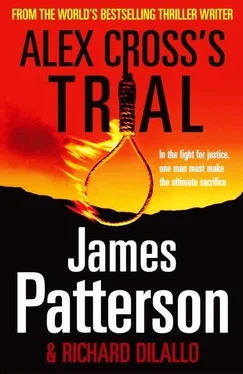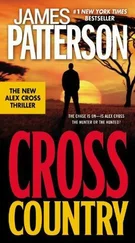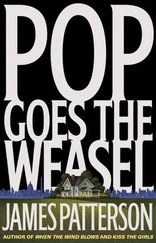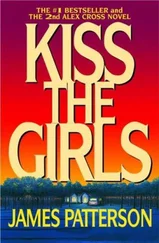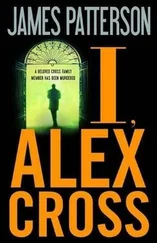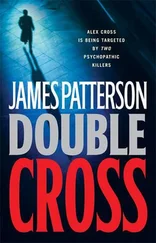Damn! It was brilliant! Why hadn’t I thought of it?
But of course, if I had thought of it – if I’d even asked her to do such a thing – I could have been disbarred.
As it was, she was on her own.
“Well, sir,” she said to Lewis, “I was looking over the warrant, you know, and I said, ‘I still don’t think y’all have the right to do this. But if that’s what the paper says, I reckon we’ve got no choice but to let you come on in.’”
“You said that?” Lewis turned to the jury, hoping they would share his skepticism.
None of them even noticed. Their eyes were on Moody. She had them under her spell, and they were finally listening.
“Yes, sir, I did, and I no sooner got the words out of my mouth than a bunch of ’em rode up on their horses and started shootin’ and yellin’ and everything. Just like Papaw said.”
“If we can,” Lewis said, “let’s return to the issue of the search warrant.”
“Yes, sir,” said Moody, as proper and polite as I had ever heard her.
“Now, who showed it to you?”
“Mr. North was the one holding the paper,” she said. “And Mr. Stephens was with him.”
“You are absolutely certain they presented that warrant to you?”
“Well, yes, sir, I mean – that’s what happened. Just like y’all said. Don’t you believe me?”
She looked the very picture of confounded innocence.
Maxwell Lewis turned to my father and shrugged.
My father spoke from the bench in a dangerous growl: “Moody Cross. You have sworn to tell the truth in this court. Do you understand that?”
“Oh, I certainly do, Your Honor, that’s just what I’m doing,” she said. “For the life of me, I can’t figure out why me telling the truth has got y’all so confused. It’s almost like you’re angry at me.”
She even had the nerve to smile. I thought, Don’t get carried away now, don’t go too far. You’ve got them right where you want them .
Before she took the stand, Moody and her grandfather had been uncooperative liars, uppity Negroes, troublemakers. Agitators defying a legal search warrant. Now they were innocent citizens who had agreed to a search of their premises and then, without warning, were unfairly and savagely attacked. For no reason at all.
THE MOMENT MOODY stepped off the witness stand, my father declared a recess until Monday.
I followed Moody, L.J., and Jonah down the steps of the courthouse into a barrage of questions accompanied by that acrid gunpowdery smell of flash powder exploding. Moody moved through that crowd of newsmen like a ship slicing through a wave, holding her head up, walking straight ahead.
We brushed off the last pesky reporters and walked three blocks to the Stringer house. We waited until we had Moody in the War Room before anyone spoke.
“What did you think you were doing?” I asked. “You got up under oath and told the biggest, fattest lie in the history of Mississippi. And all the time grinning like a fool!”
She was grinning like that now. “I tried to keep the smile off my face,” she said.
“Why didn’t you tell us you were going to do that?”
“’Cause if I had, you’d have told me not to do it. This way I could scare the devil out of that Loophole Lewis, and your daddy the judge, and Phineas Eversman, and everybody else who was in on the lie.”
“But you lied in order to counter their lie,” I shouted. “That’s perjury!”
“So what?” she said. “You fight fire with fire. Lewis can’t contradict me. If he does, he’ll have to admit they made up that warrant out of thin air, a long time after the raid.”
“Oh, I understand what you were doing, all right,” I said. “I just want to know what gives you the right to–”
“Ben,” said L.J. “I don’t see how this hurts us. I think it can only help.”
I sank onto a chair. “I think so too, as bad as that is. What do you think, Jonah?”
Jonah was looking out the narrow second-floor window.
“It must be six-thirty. The usual mob is beginning to form,” he said.
Then he turned from the window and faced the three of us.
“So, what do you think?” I repeated.
“I think what Moody did was… interesting. I must say, I did enjoy watching Loophole Lewis and Judge Corbett squirming like worms on a hook…”
I smiled. We had all enjoyed that sight.
“… but it won’t make any difference,” Jonah finished. “I’m afraid it won’t.”
“Yes, it will,” Moody protested. “It’ll cast doubt in their minds. It’ll make it seem like we tried to cooperate, and they attacked us anyway.”
Jonah shook his head. “Oh, Moody. Those jurors have lived here their whole lives. They don’t care who’s telling the truth and who’s lying! The phony warrant? Some of the jurors were probably down at the town hall when Eversman was writing it up.”
There was silence then. A long minute of it.
The chanting outside began again.
Free the Raiders!
Let ’em go!
Moody stood and smoothed her blue skirt. She adjusted her straw hat and slipped on her white gloves.
“I got to go. Papaw is in bad shape. Coming to the court, he didn’t hardly know who he was,” she said.
Without thinking about it I leaned over and kissed her on the cheek. “Tell Abraham I’m coming out tomorrow to see about him.”
Jonah said, “Thank you for trying to help, Moody. From the bottom of my heart.”
IT WAS TIME TO TRY OUT the plan I had concocted. Maybe it was even past time, too late. Moody and L.J. had come with me. Jonah wanted to but knew he couldn’t. After all, he was representing the great state of Mississippi, and we were about to break the law in too many ways to count.
“Stinks bad in here,” Moody said.
The awful smell was everywhere, a sharp, nauseating odor, like a cross between bad patent medicine and rancid moonshine. It was the foul scent of the chemicals Scooter Willems used to develop his photographs.
I had just climbed through an unlocked window, with Moody and L.J. behind me, into Scooter’s old cabin off the East Point Road. Now we were in his studio, one large room with black curtains dividing it into three. The front part was a portrait studio, with a backdrop and a stool for the subject to pose on. In the middle section two large wooden tables held trays of foul-smelling chemicals. But it was in the last section that we found what we’d come for: boxes and boxes of Willems’s photographs, with dozens more pinned to the walls.
There was one box full of nothing but photographs of lynchings. Scooter Willems had been busy these past months. Beside that box sat a stack of postcards manufactured from the photos, souvenir pictures of hanged corpses, burned bodies, twisted victims, like the one I’d received in the mail.
“God Almighty,” Moody said. “The man has taken pictures of everybody who ever got hanged.”
“Look here,” said L.J., working his way along the wall. “These are all from the Bobby Burnett lynching.”
I held up the lantern to see.
“First, take a look at poor old Bobby hanging there,” L.J. said. “Now look who’s standing next to him. There . By his feet.”
There they were, plain as day in the flickering lamplight: Chester Madden and Lincoln Alexander Stephens, two of the three White Raiders on trial. They grinned up at the bloated, bloody, bursting head of Bobby Burnett.
One by one I pulled the photographs down from the wall, gathering them in a manila folder I found on Scooter’s desk.
Читать дальше
